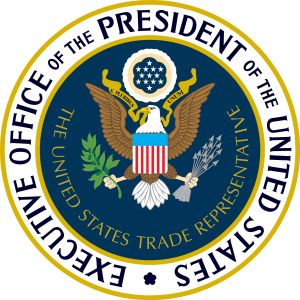 The U.S. Trade Representative has posted comments received for the 2013 Special 301 Review. The full docket is available here. In all, USTR received 30 comments from American or multinational firms and trade associations; seven from civil society groups or coalitions of civil society groups; two from foreign business, and one from an individual. The deadline for submissions by foreign governments is next week (though Panama has already submitted comments). On the 20th, the interagency Special 301 Committee headed by USTR will hold an open hearing in Washington DC as part of the review.
The U.S. Trade Representative has posted comments received for the 2013 Special 301 Review. The full docket is available here. In all, USTR received 30 comments from American or multinational firms and trade associations; seven from civil society groups or coalitions of civil society groups; two from foreign business, and one from an individual. The deadline for submissions by foreign governments is next week (though Panama has already submitted comments). On the 20th, the interagency Special 301 Committee headed by USTR will hold an open hearing in Washington DC as part of the review.
As usual, the International Intellectual Property Association (IIPI)and the Pharmaceutical Research and Manufacturers’ Association (PhRMA) have submitted detailed comments suggesting the placement of multiple countries in the Specail 301 Report. Their submissions also include introductory sections that highlight the industries’ top priorities regarding international IPRs.
The IIPA submission lists the following “commercial hurdles faced by the copyright industries of the U.S.”
- The need for deterrent enforcement repsonses to copyright policy
- Internet piracy
- Enterprise (including government) end-user piracy of software and other copyright materials
- Unauthorized loading onto PCs (Hard disk loading), mobile devices (mobile device piracy) and “media boxes”
- Circumvention of technological protection measures
- Illegal camcording of theatrical motion pictures
- Piracy of books and journals
- Optical disk and game cartridge piracy
- Pay TV piracy and signal theft
- Implementation of IPR provisions in trade agreements
- Implementation of the WCT and WPPT, and Ongoing Work at WIPO to promote robust intellectual property protection
- Market access barriers
The PhRMA submission lists “jey areas where IP has the greatest significance” to the industry:
- Scope of patentability
- Patent backologs and approval delays
- Patent enforcement
- Early resolution of IP disputes and marketing approval
- use of compulsory licensing and other mechanisms that undermine IP rights for domestic policy purposes
- Local manufacturing requirements as conditions for market entry, or requests to tranfer IP
- De facto bans on imports
- Protection for pharmaceutical test or other regulatory data
(The PhRMA submission also contains information about “foreign government price controls and cost containment measures that undermine IP and impede market access.”)
A joint civil society submission authored by PIJIP faculty and staff and signed by eleven civil society groups and individuals made the following main arguments:
- that the 301 process and report fails to implement stated U.S. policy promoting balanced intellectual property policy on major public interest issues, including on policies affecting access to affordable medications in poor countries and promotion of users’ rights in copyright policy;
- the definition of what is “adequate and effective intellectual property protection” cannot follow a one size fits all model where every country in the world is expected to have the same rules and interpretations as possessed by the United States – such a norm ignores the painful fact of gross income disparity in developing countries which incentivizes monopoly holders to price the great majority populations (at least 90%) out of the market;
- the process for considering public submissions is inadequate and leads to arbitrary and capricious outcomes in the report; and
- the current use and operation of the program as a set of increasingly serious “watch lists” ending in a priority foreign country listing with a specific trade sanction process violates the World Trade Organization’s ban on unilateral adjudication of trade disputes.
The submission was been endorsed by Sean M. Flynn (Program on Information Justice and Intellectual Property); Alberto Cerda (Professor in Law, University of Chile Law School); David Levine, (Associate Professor, Elon University School of Law); Erik Josefsson; Sweden John T. Mitchell; IP-Justice; Electronic Frontier Foundation; Public Knowledge; Derechos Digitales; Fundación Karisma; and Consumers International.
Other civil society comments were submitted by




